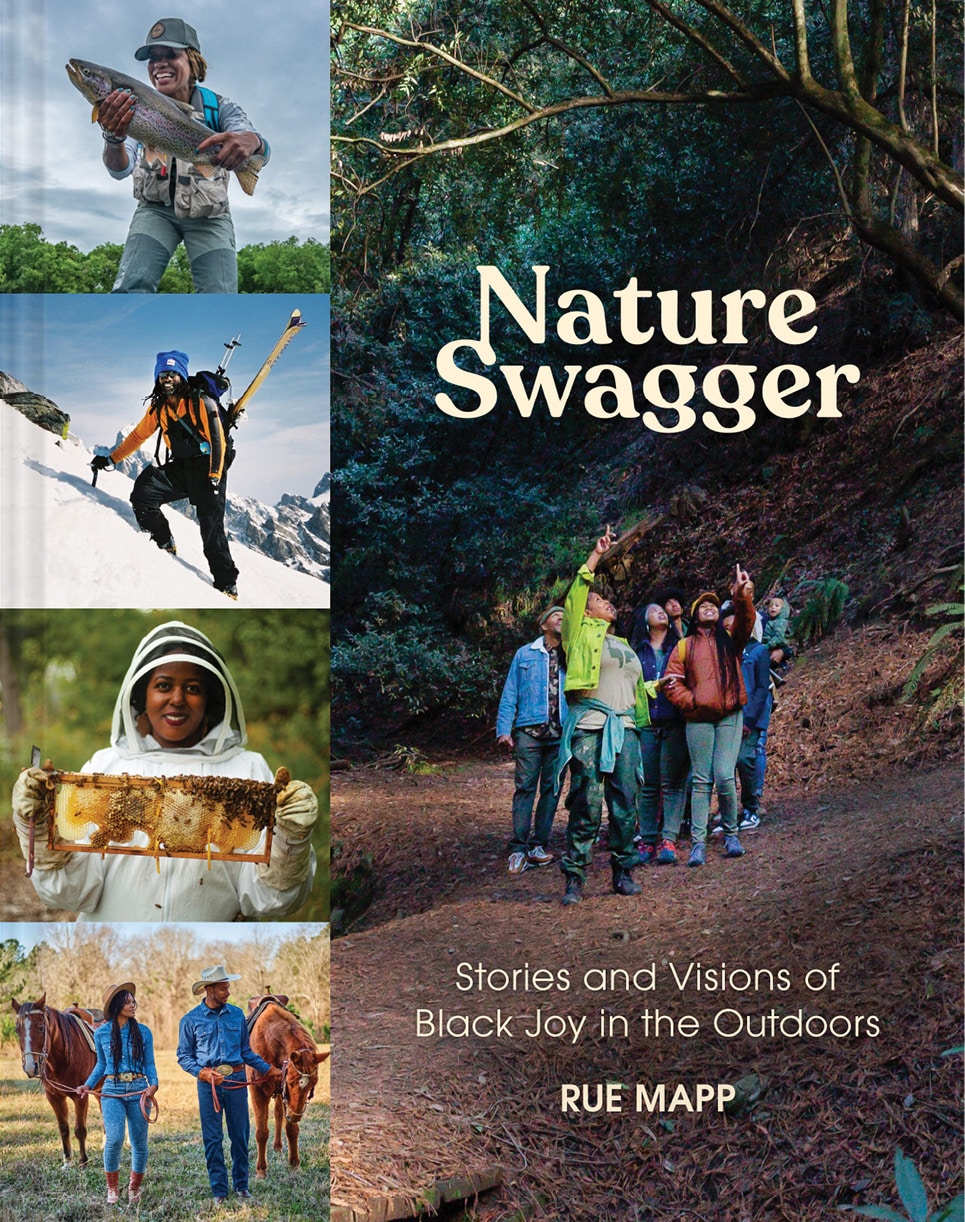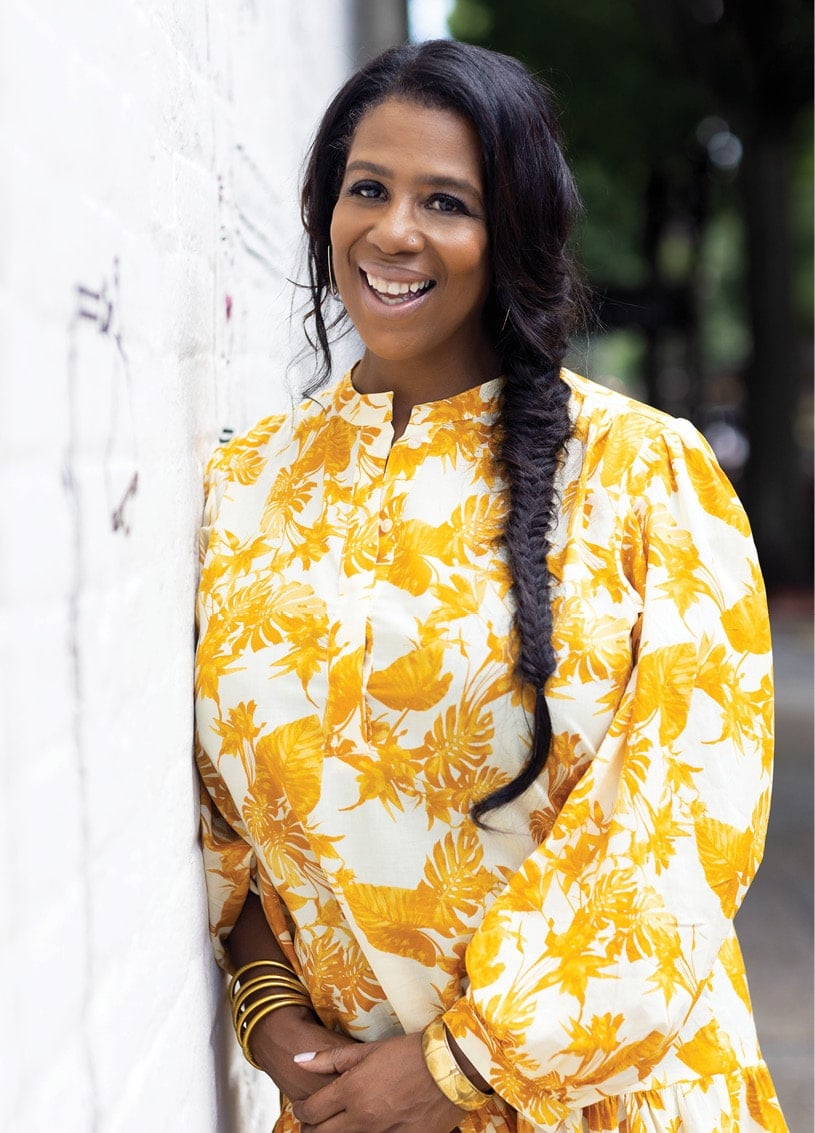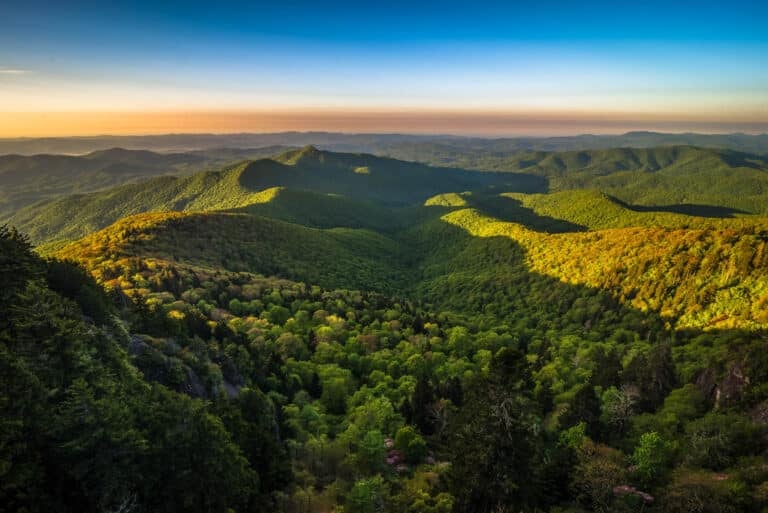A Conversation with Outdoor Afro Founder Rue Mapp
Outdoor Afro Founder Rue Mapp often asks people to get their “Nature Swagger” on in the outdoors.

“It’s a phrase that evokes an experience of confidence and awareness of how nature can inform and have a meaningful part of your lived experiences,” she said. “Every day people can tap into that wisdom and awareness to live harmoniously with the natural world, adapt, and find strength through that connection.”
Mapp started Outdoor Afro in 2009 with a singular mission: to create a new narrative representing Black people in spaces where they weren’t traditionally seen in. In the last decade, the organization has grown nationally, helping create connections to nature and nurture Black leaders in local communities.
In November, Mapp launched her latest project, titled with her tagline. “Nature Swagger” is a collection of stories from over 100 contributors, including writers, photographers, and Outdoor Afro leaders. Every entry revels in Black joy found outside.
Mapp worked with each contributor to support their stories. “Through interviews and transcribed recordings, I had to tailor the experience to the contributor’s needs and be flexible to make sure the process was accessible for anyone to participate if they were willing,” Mapp said. “So I removed any barriers I could to help more diverse Black voices be heard.”
BRO caught up with Mapp to discuss changes in the outdoor industry, her new book, and her partnership with REI.
BRO: How have you seen the outdoor industry evolve since you started Outdoor Afro in 2009?
RM: One thing that has been exciting to see over the past decade is that more people are finding their voice and community in the outdoors through affinity groups. These groups have all together helped the outdoor industry understand the need for more people to engage in the outdoors in different ways that might not have been popularized before.
It’s more than being reactive but instead thoughtful and relational, as well as recognizing that it helps the economics of the industry to be more accessible.
BRO: Can you talk about the origins of your new book, Nature Swagger?
RM: I had a book on my heart for years now. I started as a writer. At 10 years old, I was writing in my Hello Kitty diary, sharing my experiences in nature and reconnecting with those experiences every year after. Over the years, I came into contact with many people and their incredible, everyday stories. I thought it was important to showcase these stories.
Overall, this is a new narrative of Black people as strong, beautiful, and free. During the pandemic, connecting to nature became a challenge for many of us. And while the media focused on peril and pain, this book felt ever more urgent to present to the world. Joy and community in nature felt needed to counterbalance the constant portraits of pain in the mainstream. This is why I deeply appreciated learning that my publisher, Chronicle Books, wanted to do something highly visual.
For me, it was also important that Nature Swagger connects to all levels of literacy to connect with each story. There are short stories, reflections, and poems from contributors from ages nine to 99, with beautiful photos throughout. Nature Swagger is not just about “peak” experiences—tallest mountain climbed or most strenuous trek—instead, it’s very much about how nature can be a joyous part of anyone’s life.
BRO: Can you talk about some of the Black leaders highlighted in the book?
RM: (Soul Fire Farm’s) Leah Penniman—I love how someone like Leah can navigate urban spaces with awareness of oneself and be transformed through their connection to the earth and share that knowledge with the people.
(Washington, D.C.,-based organizer and National Parks Foundation consultant) Akiima Price—how she saw and experienced destruction in her community and found nature was a tool for people to find healing.
Then, the book shares stories from people who meditate on love. We don’t hear enough of Black people in nature and talking about love—that is a theme that echoes throughout the book.
BRO: Where did you go for inspiration when you needed a break from working on the book?
RM: My grandson was living with me at the time. He was a pandemic baby. I had a lot of good breaks to spend time with him at parks, and it just felt good to lean into my role as a mother and grandmother during that time.
Around the same time, I also established my for-profit enterprise, Outdoor Afro, Inc., and developed a hike collection with REI Co-op. So there was this strong creative current and focus to lean into. Additionally, my national not-for-profit, Outdoor Afro, was growing rapidly with new staff and a growing board of directors.
BRO: Can you elaborate on the Outdoor Afro X REI Collection? How did this partnership come about?
RM: In 2011, I used to do tabling at the REI Berkeley store to get the word out about Outdoor Afro. Our relationship grew from there. REI played an integral part in those early years, supporting and contributing to our volunteer training program as it grew. REI’s leadership team has always been a true thought partner to make the outdoors more equitable. Those tabling days and more than 13 years of relationship-building with REI Co-Op led to serious conversations to address the unmet needs and cultural barriers for Black people in outdoor gear and equipment.
Photos Courtesy of Mapp








